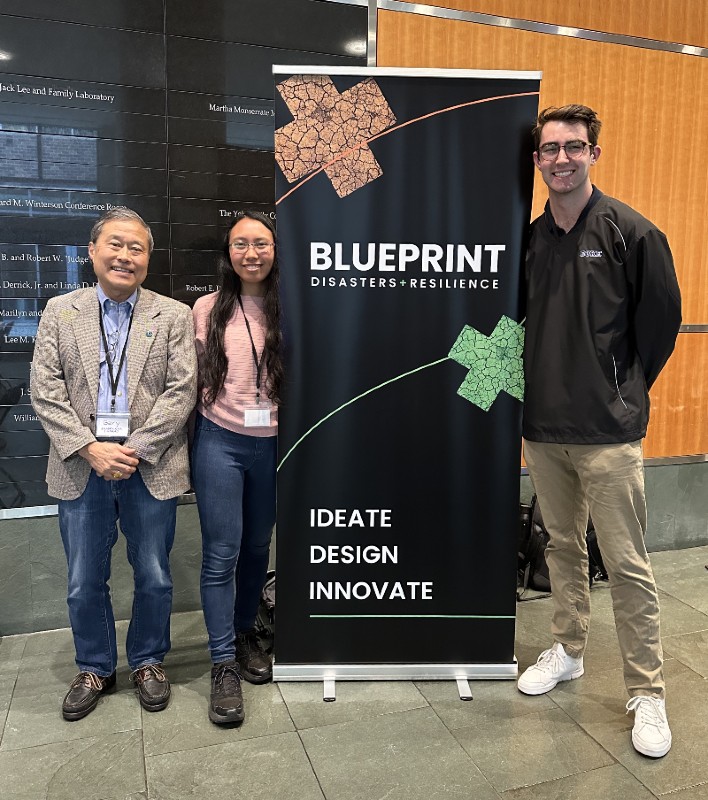OR&R Takes Leading Role at Duke University Blueprint Conference
MAY 8, 2023 — Gary Shigenaka, Scientist Emeritus with the NOAA Office of Response and Restoration (OR&R), gave the keynote address at the 2023 Blueprint Conference on Disasters + Resilience, hosted by Duke University Conservation Technology. He also served as a mentor and judge for the sustainable tech ideation competition as part of the conference.

The theme of Blueprint 2023 was “Disasters and Resilience,” with a goal of “developing revolutionary ideas in response to critical challenges in environmental disasters through a thoughtful, innovative design process.” The conference and competition “aims to inspire actionable blueprints for sustainable and scalable technologies or policies that branch out in natural disaster response.”
Shigenaka’s keystone talk covered current topics in oil spill response, touching on notable historic examples before exploring ongoing challenges related to technology, public perception, social science, and risk communication around spills. All of these factors influence community resilience to oil spills on the coast. Other speakers covered a wide range of subjects including climate resilience, wildfires, urban heat, and pollution. Toddi Steelman, the Stanback Dean of the Nicholas School of the Environment at Duke University, gave the closing remarks.
The Blueprint conference was held on the Duke campus in Durham, North Carolina from March 24-26, and brought together students from Duke and the University of North Carolina. Students were asked to come up with potential solutions that could help address the challenges they heard about from the presenters. On the final day of the conference, the student groups presented their ideas and the solutions they designed, and a panel of judges made up of invited speakers selected winners.
Winning groups covered topics such as affordable housing and heat islands; rain gardens to reduce environmental PFAS concentrations; and electrical grid upgrades for wildfire prevention. The winners received financial prizes to further explore their ideas, with $500 going to the winner of each of three categories and a $1500 grand prize.
more images


